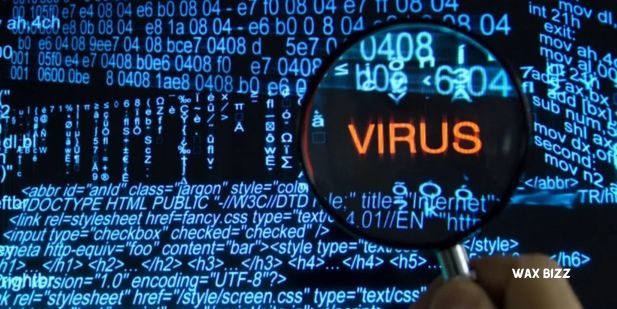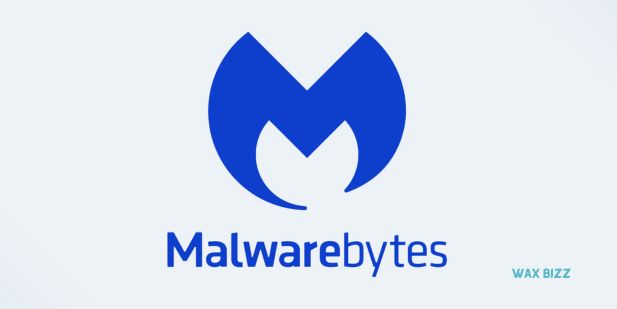The WebCord Virus has been making headlines in the world of cybersecurity, causing concern for individuals and organizations alike. This malicious malware has been spreading through the popular communication app Discord and can have devastating consequences for those who fall victim to it. In this blog post, we will dive into the details of the WebCord, including its threats and how to prevent it from infecting your devices. By utilizing powerful security tools like Malwarebytes, we can stay one step ahead of this dangerous virus and protect ourselves from its harmful effects.
Unraveling the Mystery of the WebCord Virus
The WebCord Virus is a formidable cybersecurity threat that leverages the popular messaging platform Discord to infiltrate devices. At its core, WebCord is a piece of malicious software designed to exploit the trust and frequent interaction among Discord users. The virus typically manifests through deceptive messages or links, appearing from known contacts or reputable sources within the community. Once clicked, these links initiate the download of the malware, covertly installing itself on the user’s device. What sets WebCord apart from other malware is its ability to bypass traditional antivirus detection methods, utilizing sophisticated techniques to hide its presence.
How the WebCord Spreads Among Users
The WebCord Virus propagates among users primarily through social engineering tactics, exploiting the trust within the Discord community. Attackers cleverly disguise the virus in seemingly benign links or files shared in chat messages, direct messages, or community forums. Once a user clicks on these deceptive links, the virus leverages the action to install itself on the device without the user’s knowledge. Another spread method includes using compromised accounts, where hackers gain access to a user’s Discord account and then distribute the virus to the account’s contacts, amplifying the malware’s reach.
Identifying the Signs of a WebCord Infection

Recognizing the signs of a WebCord infection early can be crucial in preventing the spread of this malicious software and safeguarding your device’s integrity. Symptoms of a WebCord infection may not always be apparent, given its sophisticated design to evade detection. However, there are telltale signs that should alert users to its presence. These include unexpected system sluggishness, a sudden spike in CPU or GPU usage not attributed to known applications, and unusual activity in your Discord account, such as sending messages you did not write.
Protecting Your Devices Against WebCord
Protecting your devices from the WebCord Virus involves proactive and vigilant cybersecurity practices.
Firstly, ensure your antivirus software is current; Malwarebytes is recommended due to its ability to detect and remove advanced threats like WebCord. Utilize its real-time protection feature to guard against malware installations from malicious links or files.
Secondly, regularly update your operating system and all applications, including Discord, to patch any security vulnerabilities that WebCord could exploit. Implementing two-factor authentication (2FA) on your Discord and other important accounts adds an extra layer of security, significantly reducing the risk of unauthorized access. Educate yourself and others about the dangers of clicking on suspicious links or downloading files from unverified sources, especially within Discord chats or direct messages.
Finally, important data should be regularly backed up to an external drive or cloud storage to prevent data loss in case of an infection.
The Potential Risks and Damages Caused by WebCord
The WebCord introduces many risks and damages to individual users and organizations. Primarily, it compromises the security and integrity of infected devices, making them susceptible to further exploits and attacks. The malware can extract sensitive personal and financial information, leading to identity theft, economic loss, and unauthorized access to private accounts. In a business context, WebCord’s infiltration can result in significant data breaches, exposing confidential corporate data and jeopardizing customer trust.
Essential Prevention Strategies Against the WebCord Virus
Implementing robust prevention strategies is imperative to shield against the WebCord, which capitalizes on social engineering and exploiting software vulnerabilities. Foremost among these strategies is the adoption of advanced cybersecurity tools. Installing comprehensive antivirus software, such as Malwarebytes, provides a critical defense layer, offering real-time scanning and detection capabilities that are adept at identifying threats like WebCord before they infiltrate your system.
Equally important is the cultivation of cautious online behavior. This involves scrutinizing links and files before interacting with them, particularly within platforms like Discord, where the virus is prevalent. Regular educational sessions on cybersecurity threats can empower users to recognize and avoid potential dangers.
Removing WebCord: Best Practices
When removing the WebCord Virus from your system, following best practices is crucial to ensure thorough eradication without compromising your device’s integrity. Begin by disconnecting your device from the internet to prevent spreading the virus or transmitting sensitive data. Next, start your device in Safe Mode, which only restricts the operation to essential systems, minimizing the virus’s ability to hide or replicate. Utilizing powerful antivirus software like Malwarebytes, perform a full system scan to detect and isolate any malicious software, including the elusive WebCord.

Malware sophisticated algorithms are designed to uncover and eliminate even the most advanced threats that traditional antivirus programs might miss. Once the scan is complete, remove any detected malware and follow any additional recommendations provided by the software to secure your system. Afterward, a second scan will be conducted to ensure no virus remnants remain. Changing all your passwords is also advisable, especially if you suspect any personal information may have been compromised.
How to Deal with Infected Systems
If you suspect your system is infected with the WebCord, immediate action is crucial to mitigate potential damages. First, refrain from logging into personal accounts or conducting financial transactions, as this could expose sensitive information to attackers. Notify your contacts to prevent the spread of the virus through your account. Utilize a trusted antivirus program to perform a deep system scan; Malwarebytes is recommended for its efficiency in detecting and removing sophisticated threats. If the infection persists, consider seeking assistance from cybersecurity professionals who can provide targeted support.
WebCord and Its Impact on Personal Information
The WebCord Virus poses a significant risk to the confidentiality and integrity of personal information. Once it infiltrates a device, this malware can access and harvest sensitive data, including login credentials, financial information, personal identification details, and even private conversations. Such unauthorized access not only endangers the privacy of the infected individual but also places them at risk of identity theft and financial fraud.
Cybercriminals can exploit this stolen data in various malicious activities, from selling personal information on the dark web to directly accessing bank accounts or creating false identities. Users must be aware of the potential for such breaches and take proactive steps to safeguard their data, emphasizing the importance of cybersecurity measures and cautious online behavior to mitigate these risks.
Conclusion
In summary, the WebCord virus represents a significant cybersecurity threat, exploiting the widespread use of Discord to disseminate information among unsuspecting users. Its ability to elude detection and complex propagation methods underlines the importance of adopting stringent cybersecurity measures. Utilizing advanced antivirus solutions like Malwarebytes, staying vigilant about software updates, and practicing caution with online interactions are pivotal strategies to fend off such threats. Awareness and education about the malware risks, coupled with proactive prevention measures, can significantly minimize the potential impact of the WebCord on individuals and organizations.
